"There could be no fairer destiny for any physical theory than that it should point the way to a more comprehensive theory in which it lives on as a limiting case." -Albert Einstein
Imagine: you've worked hard all your life, through your primary and secondary school education, where you worked hard to get into a good college, through your undergraduate degree, where you found something you were passionate enough about that you wanted to study it even further, and then through graduate school, where you spent half-a-decade or more immersing yourself, non-stop, in an area of research in a field that you love.
You become familiar with the deepest known theories about whatever it is you've studied, and you begin to see where our understanding in some part of the material world begins to break down. The great unsolved problems of your time look like missing puzzle pieces, while the tools, equations and current theories begin to look like misshapen pieces that don't quite fit where they're supposed to.
In other words, you've run up against the limits of our current knowledge; to make any further progress is going to take an innovation that's not yet a part of our scientific lexicon.
Maybe you're a biologist, trying to understand how the sensation of itch actually works. The three main types of sensory neuron in humans -- pain, pressure and temperature -- don't quite seem to cover it.
 Image credit: Debra Krohn, via http://pbworks.com/.
Image credit: Debra Krohn, via http://pbworks.com/.
Maybe you're a geoscientist, trying to figure out how to predict when the entire mantle convects, and when only the upper mantle convects to transport heat and materials.
 Image credit: Fermilab, via http://www.fnal.gov/.
Image credit: Fermilab, via http://www.fnal.gov/.
Maybe you're a particle physicist, trying to decipher what accounts for neutrino mass, and why they're so mind-bogglingly light compared to all the rest of the massive, standard model particles.
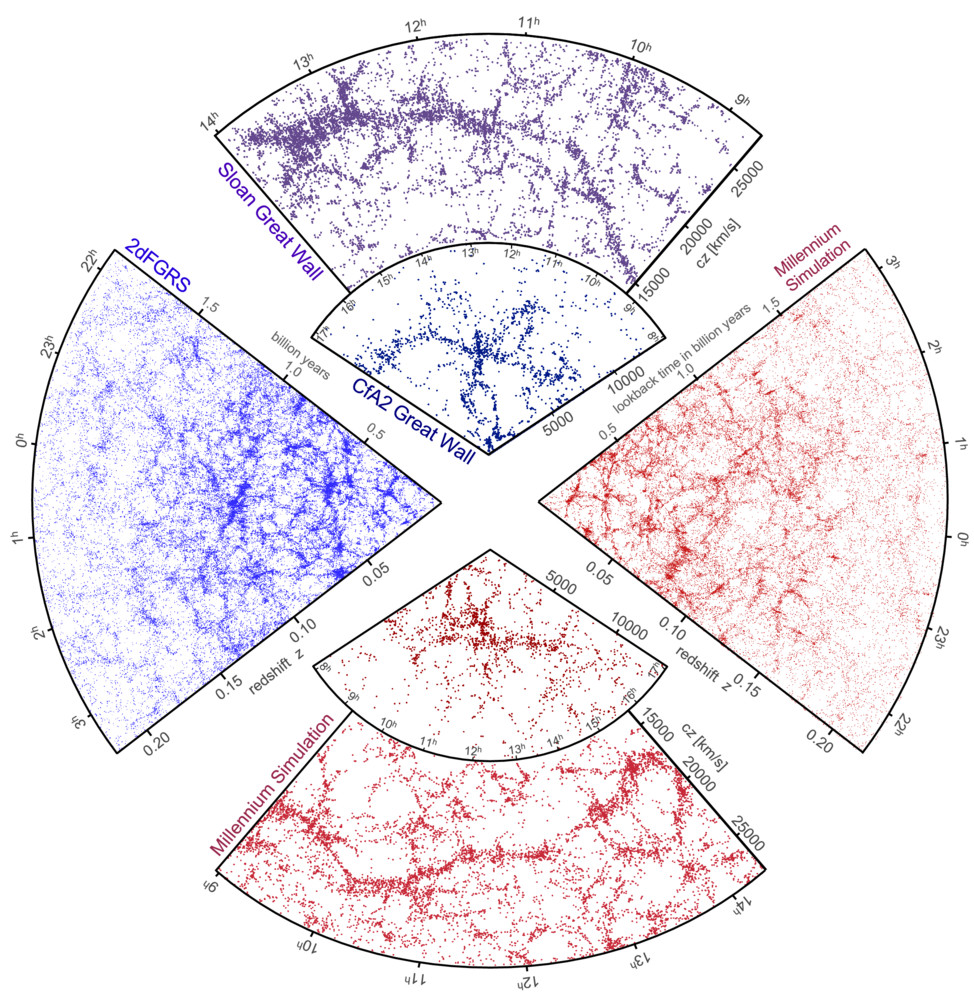 Image credit: 2dFGRS, SDSS, Millenium Simulation/MPA Garching, and Gerard Lemson & the Virgo Consortium.
Image credit: 2dFGRS, SDSS, Millenium Simulation/MPA Garching, and Gerard Lemson & the Virgo Consortium.
Or maybe -- like me -- you're an astrophysicist, trying to solve some of the great cosmic mysteries of just how it is our Universe got here, and came to be the way it is today.
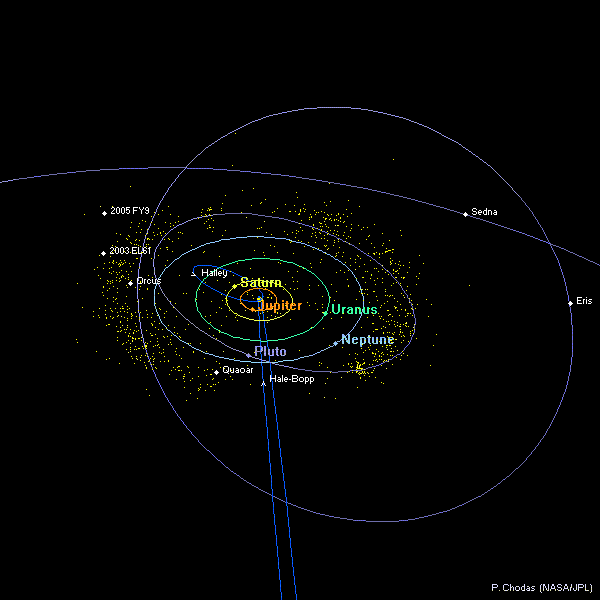 Image credit: P. Chodas (NASA / JPL), via C. Seligman of http://cseligman.com/.
Image credit: P. Chodas (NASA / JPL), via C. Seligman of http://cseligman.com/.
The thing is, no matter what your field is, there's more to learn, there's progress to be made, and there's work to be done. If the current theories and laws can't explain everything that's observed -- all the experimental and observational phenomena -- then that theory cannot be the entire story.
And in that sense, given that even the best scientific theory only has a limited range of validity, all scientific theories are wrong. (And before you quote me out-of-context on that, keep reading.)
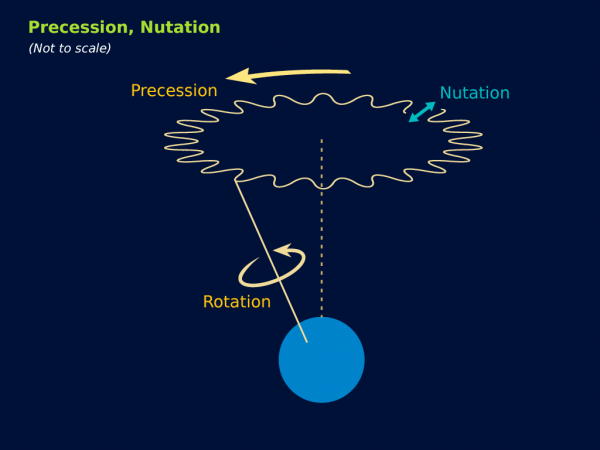 Image credit: Christopher Crockett from http://christophercrockett.com/.
Image credit: Christopher Crockett from http://christophercrockett.com/.
But that's not really fair. Scientific theories are only meant to have a certain range of validity! We know that the Big Bang doesn't explain what came prior to the Big Bang; we know that evolution doesn't explain the origin of life; we know that Airy's theory of isostatic compensation doesn't explain the motion of the Earth's crust over geologic timescales; we know that General Relativity doesn't explain the existence of antimatter.
But we want to know the answer to all of those questions. And that requires new ideas; it requires new scientific theories.
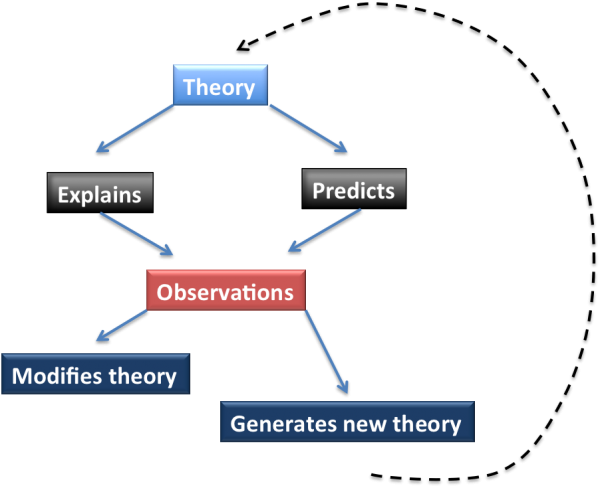 Image credit: Adaptive Landscapes, via http://adaptive-landscapes.org/.
Image credit: Adaptive Landscapes, via http://adaptive-landscapes.org/.
To explain what happens prior to the Big Bang, we have the theory of cosmic inflation. To explain the origin of life, we have the theory of abiogenesis. To explain the motion of Earth's crust, we have plate tectonics. And to explain the existence of antimatter, we have quantum field theory. All of these theories are very likely valid, as far as we understand them, but none are necessarily the final, complete and fully comprehensive answer to these questions.
And moreover, these are just the most successful ones; along the way, there were plethoras of alternative scientific theories that didn't quite pan out. Here are some of the more interesting ones from my field: astrophysics.
We know that black holes come in a couple of different varieties, ranging from a handful of solar masses (from collapsed supermassive stars) all the way up to millions or billions of times the mass of our Sun: the supermassive black holes found mostly at the center of galaxies. But could the Universe have been filled with lower-mass black holes from the early stages of the Universe? That's the theory of primordial black holes, or PBHs!
Now these have been of interest for a number of reasons -- as a dark matter candidate, for example -- for some time. But we've looked for them, we've investigated their physics, we've tested the theory for compatibility with our current knowledge of large-scale structure of the Universe, and it just doesn't seem to fit with what we know. It's still a possibility, but a remote-looking one, and it doesn't solve the problems it was designed to solve. So, no PBHs; that's a scientific theory that's wrong (so far), but it's still interesting to think about.
We know that structure, on the largest scales, forms into giant superclusters with a certain large-scale distribution. Clumps beyond a certain size don't seem to exist; and the large-scale features we do see tell us what the Universe is (and isn't) made out of. But one of the great ideas that came along was that large-scale structure could have been seeded by a network of cosmic strings, or giant one-dimensional defects in the fabric of spacetime!
But despite a reasonable theoretical motive behind them, we've performed exhaustive surveys of our Universe, and the evidence against cosmic strings is overwhelming. The nail-in-the-coffin that our Universe's structure doesn't follow from cosmic strings came with the measurement of the low-multipoles from the COBE satellite; the disagreement is too much. But cosmic strings are still interesting to thing about for a variety of reasons, and could rear their head in the future in some other form.
One of the most important parts of relativity is the idea that experimental results are independent of what direction your experiment is oriented in, and also is independent of what your linear velocity happens to be. This, generally, is known as Lorentz invariance, and is a symmetry that -- as far as we know -- is always respected by nature.
But if you break this invariance, a whole slew of interesting phenomena could happen. And so we look, and we build theories based on breaking it. So far, the only results are null, within our statistical limits. But that doesn't mean, at some level, this couldn't potentially be interesting.
I don't bring any of these ideas up to try and convince you that they're right; I don't think any of them are!
But I bring this up so that the next time you hear about some theory, it's totally reasonable to ask, "What overwhelming evidence do we have that this is correct?" But rather than simply dismiss it, if it sets off your internal BS-detector, I want to assure you of a number of things:
- Your BS-detector is probably right (and honestly, it's probably not sensitive enough), and this isn't likely to be the next great revolution in our understanding of the Universe,
- This research is still important, as it's exploring a hitherto unexplored possibility, which could teach us something about the Universe,
- and if there's even a germ of a good idea in there, scientific inquiry is what will grow that into a full-fledged theory that means something.
Most scientists go through their entire career without coming up with even one original idea, and most of the ideas that they do come up with aren't worth the weight of the paper they're printed on. But you've got to try, or you'll never move forward. The danger of putting yourself out there and finding out that you might not be right is far worse than not putting yourself out there at all.
It's a great big Universe out there, and there's still so much to be understood. I'm one of the least inclined to be credulous about a new idea in my field, but even I recognize why it's important. Trying new things, learning why they fail, and trying again is the only way progress has ever been made; let's continue to encourage people to do just that. Be daring, be bold, and dare to be a success. If you fail, it shouldn't cost you your career; if you succeed, all of humanity wins!

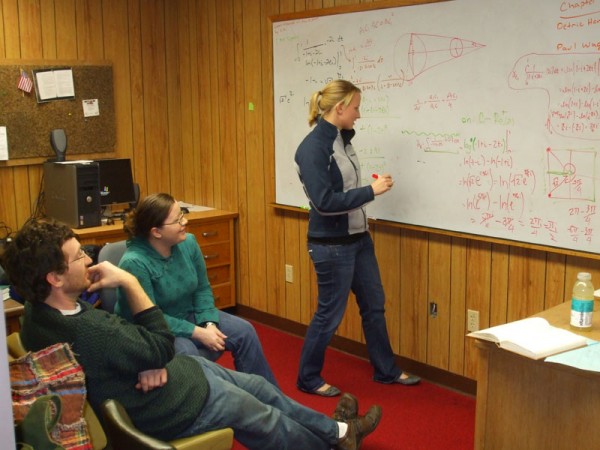
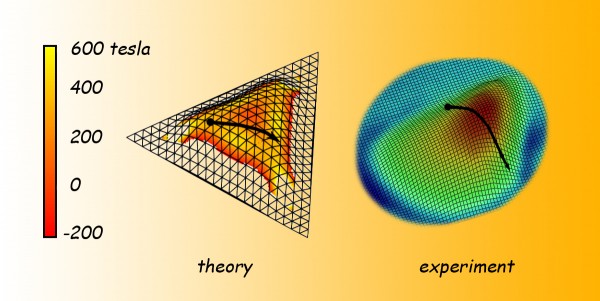

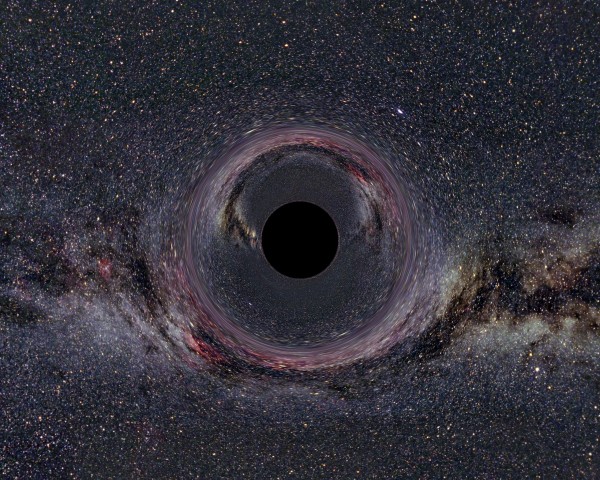

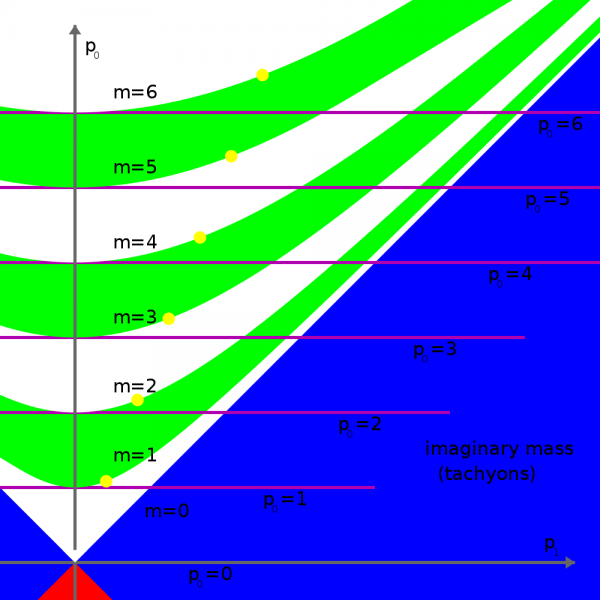

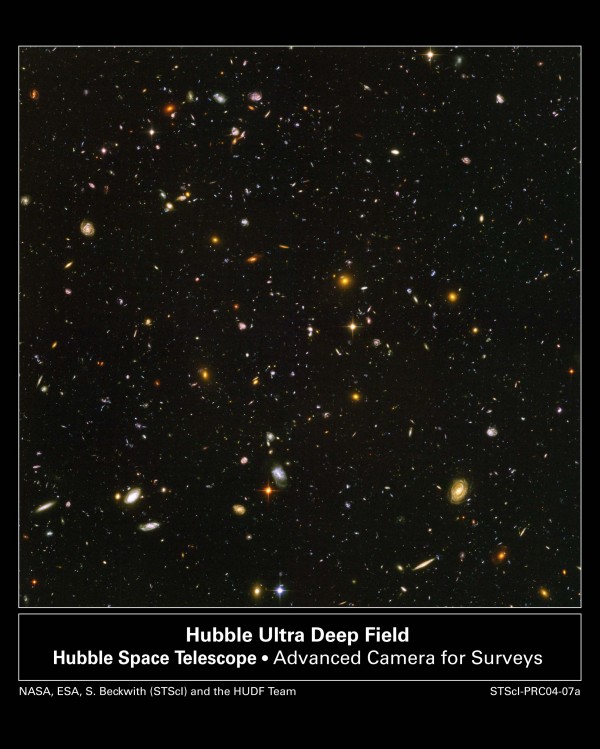
You should take Lorentz invariance out of the list. You can measure the fine structure constant fairly accurately via the Quantum Hall effect. Find a place where gravitational potential is low, like near the Sun, and you'll measure a different value. Then by the principle of equivalence you'll measure a different value if you're moving fast through the universe. People tend to say this invalidates relativity, but it doesn't. The fine structure constant varies with energy, it's a running constant, see NIST. And look at Doc30 page 185 where Einstein says ""the energy of the gravitational field shall act gravitatively in the same way as any other kind of energy". The energy density of space varies in a gravitational field. That's all a gravitational field is. And since the fine structure constant gives you the electromagnetic v strong coupling ratio, you then know that a gravitational field is just a place where the coupling strengths don't march in step. Hello unification.
I forogt to say: I know a scientific theory that will be in your list at some future date. See if you can work out which one I mean. Think raisins-in-the-cake, and note that some regions of the cake are gravitationally bound to raisins and clusters of raisins and thus cannot expand. Then think conservation of energy and remember that the cosmological constant "is equivalent to an energy density in otherwise empty space". OK, turn your BS detectors to max, and read this:
Λ is constant.
There is no cake, JD.
The danger of putting yourself out there and finding out that you might not be right is far worse than not putting yourself out there at all?
"Find a place where gravitational potential is low, like near the Sun, and you’ll measure a different value. Then by the principle of equivalence you’ll measure a different value if you’re moving fast through the universe. "
You meant if you're accelerating. It's acceleration that is equivalent to a gravitational field, not velocity.
The fine structure constant is one of the most precisely measured values in all of science. No variance is seen yet.
"The danger of putting yourself out there and finding out that you might not be right is far worse than not putting yourself out there at all?"
I noticed that typo as well. Obviously he meant "better". :)
For a more nuanced view of scientific "theories", see http://sandwalk.blogspot.ca/2010/04/this-is-third-in-series-of-postings…
I agree with Ethan. I have recently put myself out there. See a brief summary of the Theory of Dimensional Relativity on my blog at michaeljbull.blogspot.com
Your BS-detector is probably right (and honestly, it’s probably not sensitive enough)...
If your BS detector is over sensitive, then in the face of two diametrically opposed viewpoints, one based on claimed observations and the other based on approved scientific doctrine, a completely false view can be held for a long period of time on what are claimed to be scientific grounds.
A clear example would be spontaneously created giant oceanic waves that sank many a vessel without trace up to the mid 20th C.
The official scientific explanation was that the ship crews who narrowly survived such encounters were a pack of liars and that such sea waves couldn't possibly occur. That was the quite disgraceful scientific position until movies eventually captured some examples of the phenomenon in action.
Is faith a belief in dogma or ideology?Where do we draw the line? At tenets? Help, I wanna know.
"You meant if you’re accelerating. It’s acceleration that is equivalent to a gravitational field, not velocity."
Remember, CB, JD hasn't got a clue what relativity means. They have just gotten the "Physics Dictionary For Juniors" and read the definition.
He has no comprehension what he's talking about, and hence no comprehension of how he gets it wrong, even if you point it out to him.
Dunning and Kruger gets a HELL of a work-out on the internet.
"The official scientific explanation was that the ship crews who narrowly survived such encounters were a pack of liars and that such sea waves couldn’t possibly occur."
Based on two things:
Zero mechanism for such to occur.
Hearsay evidence is no evidence at all.
Now, why did the consensus change?
Also note this is EXACTLY what the plate tectonic theory went through.
1) No mechanism, therefore it doesn't happen.
2) Someone comes up with the WRONG mechanism. Refused to accept plate tectonics happens.
3) Someone comes up with a WORKABLE mechanism, and updates the observations to support the conjecture. Accepted VERY quickly.
Thanks for this. I hope that those most devout believers in their pet theories read it.
Like Socrates once said "The only thing I know..."
CB: when you're moving fast relative to me and the CMB, you're time dilated wrt to me and the universe. Ditto if you're at low gravitational potential. See http://link.springer.com/chapter/10.1007%2F3-540-40988-2_19 but note that I don't view this as undermining GR in any way.
As for Wow's comments, if you've got a copy of Graham Farmelo's "The Strangest Man", take a look at page 53. It's talking about 1923, and it says this: "At that time, Cunningham and Eddington were streets ahead of the majority of their Cambridge colleagues, who dismissed Einstein's work, ignored it, or denied its significance". Alternatively take a look at Clifford M Will's "The Confrontation between General Relativity and Experiment". See page 6, and note this: "the steady accumulation of experimental support, together with the successful merger of special relativity with quantum mechanics, led to its being accepted by mainstream physicists by the late 1920s. It took 25 years for special relativity to become mainstream. And General relativity "entered the mainstream of theoretical physics and astrophysics only with the developments between approximately 1960 and 1975, now known as the golden age of general relativity".
@wow:
so, in your oppinion, if there is no workable mechanism, things dont happen?
Like before Niels Bohr & al. there was no radioactivity?
Et "murda invariance", peab olema täidetud 2 kriteeriumi (niikui Lenini järgi, "revolutsiooni õpikus"!):
Peab olema asemele anda UUS + SEOS EELNEVAGA;
Peab olema, et Akadeemiline teadus - ei oska ENAM edeneda.
Minul on olnud "uus" - valmis juba 80-ndast aastast; siinne artikkel - esmakordne,pärast 80-ndate "Terrell pööramist".
Üksikasjalikum ARUTLUS sel teemal on Tõnu:veebiruum
Esitan "Galilei teisendusfunktsiooni":
r = ct; f(ct) =ct(1 - (v/c)cosa); {x`=x - vt; y`= ky;}; a - on nurk v,^c,
ja kui L - on Lorentz-tegur, siis k = 1/L = (1 - (v/c)^2)^(-1/2);
//Pöördfunktsioon g = 1/f; viib meid "sündmuste geomeetriasse" - analoogsesse erirelatiivsus-geomeetriale. Seosed: f(E) = F; f(g(F))=F;//
On kerge näha, et "Galilei ruumiteisendused" on SEOTUD Lorentz-teisendustega RUUMI-HOMOTEETSELT. Selleks esitame Lorentz-teisenduste "üldfunktsiooni", kujul:
l (ct) = L[ct(1 - (v/c)cosa)]; ... (1)
f (ct) = ct(1 -(v/c)cosa); ... (2)
f - on otstarbekam (muudab vaid kiiruse v-ga ristmõõdet;
f - on eukleidiline ( g - ei ole!);
..................... paremus on ilmne, kuid "keelatud", sest nimelt see "Lorentz invariance" - on muudetud heuristiliseks - teisi vaatenurki välistavaks!
Paul Dirac ütleks minu kohta: Tõnu on PIISAVALT HULL!
Speaking of controversial "findings", here's one that claims that evidence of multiverses has been detected. Caution here as the Daily Mail is not a reliable source of information.
http://www.dailymail.co.uk/sciencetech/article-2326869/Is-universe-mere…
Re #15
Here's a blog post on the same subject which includes some skeptical comments from physicists.
http://www.patheos.com/blogs/wwjtd/2013/05/scientists-may-have-detected…
"CB: when you’re moving fast relative to me and the CMB, you’re time dilated wrt to me and the universe. Ditto if you’re at low gravitational potential."
Yes relative passage of time changes due to relative velocity and relative acceleration. That still has nothing to do with the equivalence principle.
In other words, you’ve run up against the limits of our current knowledge;
This got me thinking about the origins of the universe. I've heard others say "It's incoherent to talk about what happened before the Big Bang, since that's when space/time began". I find it unsettling because there's not much difference between saying that and saying gods did it; in fact the gods did it is a better answer since it far easier to rationally demonstrate it's wrong ( I'll leave it as an exercise for you to convince the irrational people of this.) It has the effect of ending inquiry.
It also runs counter to science because how will you test/study this if the question itself is incoherent?
Let me suggest a few more useful responses.
1. BB is not the correct theory to discuss what happened before the BB.
2. We don't know.
3. Inflation
4. Discussing that exceeds what we know with certainty but here are some of the best ideas...
5.We've run up against the limits of our current knowledge.
or if you're stuck on "It's incoherent to talk about what happened before the Big Bang, since that's when space/time began". to as not to kill inquiry then why not add something like "However, the BB is not a dead end beyond which we can't inquire. Instead we have to be careful when talking about time and space at or prior to the BB because those dimensions may be significantly different, possibly even non existent or others with different qualities may have been dominant.
Yes, it is always quite funny to listen to the ants arguing with each other what an Interstate Highway is. Most scientists sound just like that.
Gigantic "Godzilla"-level lack of comprehension of English there, old boy.
Absolutely nothing to indicate where you got that from unless you pulled it from your nether butt-hole.
And if the theory is based on "Mathematical Identities" like my explanation of Gravity phenomena (and certainly of Wave-Particle Duality and also of Dark Matter and Dark Energy)?
Check my argument in http://bit.ly/To9Ny5 .
so many crackpots...
It would be nice if you (and others) used the word theory much more sparingly, that is to refer to well established, logically coherent, explicitly (and quantitatively) predictive, and experimentally validated sets of ideas, rather to the plethora of unverified and (often) unverifiable self-aggrandizing speculations that scientists (and non-scientists) are wont to make.
What arrogance it is to assume the human brain is capable - even collectively - of infinite acumen.
Teaduslikust teooriast versus Mõtte-Mudelid.
Galilei teisendused (sihil v/x) - oli TEOORIA, kinnitust leidnud ja vastanud ühtlasi ka Zenoni apooriale - loogilistest vasturääkivustest vabanenuna.
1908. aastal kinnitas seda teisendust "Terrell pöördena" tuntud katse: liikuvate kehade liikumissihiline mõõt - ei muutu, relatiivsel kiirusel! - see on vaid "ettekujutatav"!
Erirelatiivsusteooria: tugineb kahele "umbmäärasele reeglile" - postulaatidena, "arutluste alusena" - jäädes seega "tingimatult õigeiks". Kuid MITTE TEOORIANA!
Nende Reeglite alusel hakkasid astronoomid "mõtisklema" - mitte vaatlema (!?) Hubble`i punanihet, "näheski - eemaldumist", seal kus see punanihe on ju AINUS käegakatsutav TÕEND - Maa omaliikumisest Ilmaruumis (nimetame seda siis "eetriks", vaakuumiks või "bosoni-supiks") - Doppleri ristefekti kaudu!
Doppleri ristefekt avaldub (niikui Hubble`i konstantki!) ruumivõrdeliselt seosega : w`= k w; k = (1 - (v/c)^2)^(-1/2);
Eelnevalt esitasin (esitan ikka ja jälle!!!) matemaatilise tõdemuse, et :
Suurus k , kui teist järku suurus, võrreldes suurusega (v/c), - muutub "võrreldavates suurustes v ja k - ainumääravaks - pärast teatud piirkiirusi (või piirnurka, nagu arvutas Paul Kard, kujul : k = f = 1 - (v/c)cos(a);)" mil y`= r` (Galilei ruumiteisendustes).
Lisan "eukleidilisuse kinnituse neis teisendustes:
x`^2 + y`^2 = r`^2; ja
Aberratsiooninurk:
cos(a`) = (x`)/(r`) = (ctcosa - vt)/ (ct - vtcosa) =
(cosa - v/c)/(1 - (v/c)cosa); - mis on samane erirelatiivsusteooriaga. See näitab, et SEOS (eelnevaga) - on "ruumihomoteetne, homoteetsusteguriga k) (joonisel: kui sarnased kolmnurgad).
Vabandan: "Terrell pööre" - oli 1980-ndal!
Lisan: sin(a`) = (y`)/(r`) = ksin(a)/(1 - (v/c)cos(a))
Bill Minuke,
I know it's not easy to grasp, but asking "what came before the big bang" doesn't really make sense. The big bang is the beginning of time. The word "before" implies the existence of time. The question translates to roughly, "what happened at a time earlier than the creation of time?", which is incoherent.
Substitute "what lies north of the north pole?" for the question, and perhaps it is clearer that your responses aren't really more useful ones.
To wit:
1. Geographical theory is not the correct theory to discuss what lies north of the north pole.
2. We don't know (Obviously we do know what lies north of the north pole -- nothing).
3. Inflation (works just as well for my question)
4. We've exceeded what we know with certainty, but "here be dragons"
5. Not sure how this response is really different from 2.
None of these responses are really adequate answers to what lies north of the north pole. In a similar vein, none of them would be really good responses to what happened before time began either.
You forgot to point out the bigger problem in discovering answers to these questions: Postmodern deconstruction. It is rapidly tainting the soft sciences and may eventually spill into hard sciences. When cheating is standard and it becomes more important to promote your own name than be accurate, the level of data manipulation can only increase. In sciences that were never repeatable to begin with, like psychology, data manipulation has become an effective tool to self-promote and may now be the norm.
We see only tiny pockets of this in the hard sciences, but if it grows it will destroy science like a cancer. Truthiness is not capable of revealing truth.
Hominid, in what alternative reality are you reading a blog that required THAT statement?
Seems to me there's a difference between skepticism and cynicism, and the latter (plus other dubious emotionalisms) is what gives rise to a lot of the nastiness on both sides.
The way to handle anecdotal reports of anomalies such as spontaneous huge ocean waves, is the way a smart police officer handles witnesses to a crime: have everyone write up their own witness statements individually, with the aid of a well-trained interviewer (cops don't say "no you didn't see a kidnapping, we don't have crime in our town"). Keep collecting reports until patterns emerge, and then develop a mechanism for observation, for example video cameras on ships, with satellite uplinks (easy to do now, and the cost/benefit of this is obvious). A couple of good observations (videos of giant sea waves) should be sufficient to get the wheels turning to find a theoretical mechanism.
For new theories such as plate tectonics, it's legitimate to say "theory not proven" and "mechanism unclear," but IMHO it's not legitimate to indulge in put-downs and dominance games: that kind of BS is beneath the level of professional scientists. Those who indulge in that kind of emotionalistic crap should be made to eat cold corvids in public when they are finally proven wrong. That will serve as a deterrent to future instances.
"Beyond current knowledge" is if anything an incentive for bright minds to dig in and do the hard work to go into the sciences. "A-priori impossible" is not; it discourages further inquiry.
What I also find maddening is a certain attitude that comes off as smug: at first, an anomalous observation or theory is rejected outright and vociferously condemned as nonsense, and then when it proves out, it's accepted without a hiccup or, and this is the critical part, very often without admission of error by the guardians of the status-quo or credit to the original parties. Intellectual honesty compels something like the following: "at first we were highly skeptical and we rejected this item outright, but as it turns out, we were mistaken, and Dr. So-and-so deserves credit for persevering."
Another thing I frequently see is the "tribal catechism" phenomenon, for example in almost every recent discussion I've read on the subject of free will, the supporters of free will have said something along the lines of "but of course we're not suggesting there's a deity, or trying to put the ghost back in the machine!" Scientists aren't supposed to be scared of ghosts, and who even asked about deities?. Methinks they do protest to much. IMHO there's something terribly wrong with the institutional culture if it compels people to recite irrelevant statements of belief in X or disbelief in Y unrelated subject matter, in order to get their arguements taken seriously.
That said, on balance, scientists behave a heck of a lot better than many other sectors of society. Review the videos of the conferences that presented the Higgs findings, and compare to videos of the United States Congress in action.
Just please don't "fund" any of this vainglorious scientific inquiry out of the public wallet. Way too many scientists are engaged in repeat production of utter BS over and over again. This ought to be their risk alone.
G, they did that.
Got photographic evidence that was verifiably correct
Found a mechanism.
Accepted.
Same deal with Bigfoot, isn't it? If someone gets verifiably good evidence for it, then the existence of Bigfoot stops being solely crank-talk.
And plate tectonics is nowhere near old compared to this blog, so I would gainsay anything predicated on that.
By the time the internet started, there was no scientific converse starting with "theory not proven" for plate tectonics.
When there WAS "theory not proven", plate tectonics wasn't even a theory. Hell, it wasn't even hypothesis.
Someone pointed out that there was some odd agreement that has no purpose being there between the continent coastlines and fauna and had the *idea* that this was because the landmasses once were joined.
It wasn't even a hypothesis.
And the evidence for it wasn't very good. Speciation had made a huge difference to the species in the separated continents, and the agreement of the coastline was frankly pants.
Later on, it was promoted to hypothesis when a mechanism for this to happen was put forward, however, the mechanism turned out to be wrong.
And the other evidence remained very poor indeed.
So plate tectonics remained an idea at most.
Then someone changed two things (I think it was the same person):
1) Take the shape of the coastline from the shallow-sea levels. Since this doesn't erode at any where near the rate of the seashore, this is more reliable, and now it was possible to map the oceans in this manner accurately and widely. Something not possible to do originally.
2) Proffer a mechanism that turned out to be correct (i.e. there was evidence supporting it) and as the evidence for this mechanism was found, the acceptance of the hypothesis as a full-blown scientific theory QUICKLY became the norm.
@20:
IMO they are completely different, almost opposites in fact.
"...since that's when space/time began" is a comment about the limits of current human knowledge and thought. The person who says that is really saying: "not only do I not know how this occurred, but I can't even phrase a correct question because all my questions use terms and concepts that I don't think will apply. But guess what - YOU don't know either, because all your questions have the same problems mine do."
In contrast, the "god did it" person is saying: "I know what caused the universe. My knowledge is not limited and my concepts of cause do apply. Not only are you wrong to reject withold judgement on God as a cause, you are wrong to say our knowledge is insufficient on this qustion and wrong when you say that our concepts of causality don't apply."
Ethan, thanks for this post. You are correct. Not only are most wrong, alas, they are *all* are wrong. They're all incomplete.
Speaking of theories, I put forward a complete theory and, despite working with the scientific evidence, faced the ridicule and condemnation of my peers ("Or in the words of astrophysicist Ethan Siegel at Lewis and Clark College (and author of the blog Starts With a Bang), "Crackpottery doesn't even begin to describe just how dreadful this is, and how much shame should be heaped upon CWRU for this.").
Could be no other way, I guess.
Speaking of theories, someone recently just said that "Not only are most wrong, alas, they are *all* are wrong. They’re all incomplete." and I think it is someone you respect and listen to as well.
I think if you make statements like that, the ridicule is for something more basic than your science...
@ eric: Nice way to put it.
@ Erik: People put forward TOEs, or just ideas contrary to current best theory, all the time. Even if the ideas aren't actually all that good, they still get their due. Usually doesn't result in multiple editors resigning and the journal conducting an investigation of what went wrong with peer review. 'Course they usually don't pick their own reviewers, either.
This is of course all proof that your ideas are undeniably correct and The Man just can't handle you, man.
@ Wow: Obviously he meant every theory but *his* is incomplete.
Re. Wow @ 34:
Yes, "rogue waves" were eventually verified and accepted. The narrative wherein early survivors' reports were pooh-poohed was irksome but in the end that situation worked itself out. Plate tectonics seems to have depended on new tech for mapping coastlines (thanks for the history on that), which got enough attention on the subject to bring forth a hypothesis.
As for Bigfoot, installing cameras in the woods is better than calling people "cranks" who report seeing one. "Whatever-it-is" might turn out to be something interesting even if it's not a hominid. I think it's likely that it might be novel behavior by ordinary bears.
For another example, look up "Hessdalen light" in Wikipedia: odd lights in the sky above a remote village in Norway, that occurred so often as to enable setting up measuring apparatus to record their characteristics. A number of testable naturalistic hypotheses have been advanced, and can be tested more rigorously. When I read this stuff I thought it looked pretty solid and might take a nice bite out of the approx. 5% of UFOs that are considered "unknown" (not misidentified aircraft etc.).
What I'm pointing to here is, the difference in attitude between writing people off as cranks, vs. "respect and collect:" respect the individuals, collect the data.
----
OTOH, "postmodern deconstruction" is an obscurantist plague, second only to religious fundamentalism in public policy, that needs to be cured expeditiously (per Garf @ 30). I'm frankly surprised it's still actively squirming around in academia, much less spreading.
----
Re. Erik D. Andrulis, the photo posted at #36 does not match the photo posted on the Case Western page for that person's name, so I'm wondering if #36 is really Erik D. Andrulis or someone else out to make a point of one kind or another.
I wonder if Andrulis was trying to pull an Alan Sokal? Sokal is frankly one of my heroes for what he did (look up "Sokal Affair" in Wikipedia).
OTOH a quick search also finds the Bogdanov brothers, about whom it was briefly speculated that they might have been trying to pull a Sokal but more realistically they were just plain self-promoting frauds.
OTTH (on the third hand) it's possible that Andrulis really believes his stuff. In which case I would hypothesize that the origin of his "gyre" theory is in some kind of subjective experience, that arose from neurological phenomena similar to those that are implicated in the near-death experience of "going down the tunnel of light". (See also Ronald K. Siegel, "form-constants" in hallucinatory phenomena.)
Well, it's got to be better than calling them frauds, hasn't it?
One woman reported having been captured by aliens who took her baby.
One reporter asked: Were you pregnant at the time?
Answer? No.
And there ARE people who are trying to confirm RELIABLY whether Bigfoot exists by doing such things as putting in camera traps, checking for the spoor, and following up on such claims.
As for calling them cranks, well, those who ARE called cranks will complain loudly about it. ESPECIALLY if they ARE cranks.
So reports of complaints of being called "a crank" is rather a self-selecting reporting that is going to inevitably lead to the impression to the impressionable that EVERYONE who posits evidence or claim of a Bigfoot sighting is called a crank.
Even if that only happens to the 0.01% of the millions of claims.
Selective reporting bias.
Watch out for it, 'cos I think you got pwned by it.
In a real-life example of why that's naive is the Piltdown Man scam.
"Respect and collect" from the European side in general, "WHAT A CRANK!" from the USian one, in general.
And what's the current-day result of that?
Cranks pointing to the Piltdown Man hoax as "proof" scientists are ALWAYS WRONG on the crank's personal crusade to "promote the truth" assertions.
And given that BOTH are happening, people calling crank and people checking up, why the hell are you complaining? Scientists have a right to their own free speech and opinion.
@ Erik Andrulis
there was a guy here year or so ago... Chelle was his name. You two should meet and talk.. he also had/has totaly insane notions of living organisms that swim in aether and thus manifest the whole nature. Other than that... keep your theories to yourself and don't cry here.
Speaking of Bigfoot, you can see the difference between a crank and a scientist with an outlandish idea on that surprising less awful than it sounds show: Not Finding Bigfoot. I mean Finding Bigfoot.
The difference between this show and the ghost hunter and other woo nonsense reality TV as that this one actually has a biologist on the team. And she REALLY wants to find bigfoot. But at the same time, she wants to REALLY find him. And that's why every time a deer farts in the woods and the other three guys are all "Oh it's a 'squatch!" she's there to say "That could have been anything. This grainy video could be showing anything." See, those guys REALLY want to find bigfoot, and are happy taking anything remotely resembling "evidence" as proof that he exists. They're already convinced. They aren't looking for ways they could be wrong. They're cranks. She's a scientist.
It's pretty hilarious, really, how often she shoots down the very premise of the show.
It's also pretty funny that a reality TV show outside Mythbusters has something meaningful to say about science -- even though 3/4ths of it is trying as hard as it can not to.
As any proper software designer with a half a brain could tell you, the first rule of programming is: "Test the goddamn limits!".
Or, in the words of an unknown physicist: "If you haven't taken your theories to their extremes, you really don't understand your own theories."
Unfortunately, Einstein failed to take his own Special Relativity theory to its extreme and thus overlooked what was dangling right before his very nose.
Remember length contraction equation? When v->c then L->0?
Anyone else find it equally worthy of notice that when v=c then L=0? That doesn't seem even a bit strange to anyone out there? No one?
Well, it should be, because...
A whole goddamn spatial dimension just disappeared in a puff of smoke!
What can just disappear in a puff of smoke was nothing more than illusion in the first place. Reality that we inhabit is truly just 2-dimensional. Recent holographic theories of black holes are also pointing in that direction.
However, here's the real kicker...
How is a seemingly 3-dimensional object encoded on a 2-dimensional surface? Or, more properly, how exactly do bits of 3-dimensional information *interleave* on a 2-dimesional surface when v approaches c?
Information isn't lost. It's there, somewhere, right in between 1.0 and 0.0 lengths of this illusory (and illusive) 3rd dimension. But where... how?
Promises of unimaginable riches lie buried right there in the answer to that very question. How?
guess some noise from oxford was heard around here...
The website flat universe society.com lists 6 anomalies, any one of which would appears to undermine the pillars of the cosmological principle upon which the flat universe is based. An alternative model of a big bang shock wave in a positively curved universe is given serious consideration on the same website.
doug, "flat" is about a century out of date. The science has moved on.
So, well done you lot, you've managed to show that a century ago, the simplified version needed changing.
Only half a century late...
@CB #19 re: "Yes relative passage of time changes due to relative velocity and relative acceleration. That still has nothing to do with the equivalence principle".
Acceleration is rate of change of velocity. Gravitational field strength is the local slope of gravitational potential. Your SR time dilation depends on your velocity relative to me. Your GR time dilation depends on the gravitational potential where you're at compared to me. If you're in a gedanken void at the centre of the Earth you don't feel any acceleration, but you're still subject to gravitational time dilation.
"Acceleration is rate of change of velocity."
Gosh.
Thank you EVER SO MUCH for letting us know that, it would have COMPLETELY passed us by if you hadn't said!
Problem: it doesn't help your case at all.
"Your SR time dilation RELATIVE TO MY MEASURE OF TIME depends on your velocity relative to me."
Fixed that for you.
This is probably the entire cause of your ignorance. You're missing out on the science and have fabricated a version from the bits and pieces you remember.
Then claiming the science is wrong because your patchwork figuring of it is incorrect.
Re. the "respect & collect" problem: I'm not sure we're talking about the same kinds of cases here: Piltdown was a deliberate fraud, Wakefield (vaccines & autism) was another, both perpetrated by credentialed individuals. The cases I'm in favor of treating with "respect and collect" are anecdotal reports by laypeople, and those should be handled statistically. The Hessdalen organization seems to be a decent example, and as far as I can tell they haven't fallen for the typical UFO nonsense and are making progress that could put a lot of other such cases to rest and add to our knowledge of atmospheric science.
Re. "abduction" cases: some of them are overt frauds by attention-seekers, but many of them have the obvious features of altered states experiences: dreams, the hypnagogic state (borderline between waking and sleeping), and shared trance (two people talk each other into a dreamlike experience or memory of same). Better knowledge of altered states phenomena would be useful for people investigating these kinds of cases/claims, and has the benefit of generating testable hypotheses about brain functioning.
To make this clear: the point of getting intrigued by "mysteries" isn't to go all wooie-woo and worship ignorance, it's to operationalize them and solve them with minimal if any adjustments to existing supported theories.
----
Many anecdotal anomaly reports are clearly cases of expectation effects and misperception effects, that are common in other areas as well. To my mind this is fertile ground for cog sci research, and I just had a rather unpleasant chance to try it:
I consider myself a decent observer, but when I was held up at gunpoint over the weekend, I mis-reported the color of the robber's clothing compared to what was seen in the video. That may have been partly an artifact of the color of the lighting where I was robbed. I also had crime victim time dilation, thinking the event took a minute or two when the video showed it was about half a minute. Also had the classic effect of being able to describe the gun more clearly than the robber's face. All of these phenomena are well-known by police & investigators. At this point I'm looking at this event as a cog sci experiment to examine the perceptual and other effects of traumatic stress.
----
Everyone has a TOE, whether they know it or not.
I think it's worthwhile for people in general to try to explicate their personal TOEs in detail, not to attempt to "make a contribution to science," but to work toward consistency in their belief systems and behavior. Part of that exercise entails unpacking common philosophical category-names such as "Christian," "rationalist," "utilitarian," etc. One can't just take convenient shortcuts for example by saying "I believe in (the Bible, the Standard Model, whatever)," and leave it there, because very often these shortcuts conceal various contradictions.
One should also attempt to integrate one's emotional and other biases into the system, or alternately seek to overcome them deliberately. For example someone might say "I'm a utilitarian but I would favor spending large sums of money keeping me alive rather than pulling the plug." On the surface that looks like a contradiction. But the survival instinct is a basic drive, and if someone recognizes the "subjective fact of experience" of their own desire to live, they may need to make adjustments elsewhere. For example, "keep people alive in old age, not at the expense of cutting back on public health programs for children, but at the expense of certain highly expensive luxuries somewhere else in the economy, such as (example, example, details)."
Personal TOEs translate to personal ethics and public policy. Explicating them and seeking to render them empirically and internally consistent could lead to greater clarity in ethical and policy positions, and take out a large chunk of the nonsense that presently reigns. As I said elsewhere, compare the video from the Higgs conference to video from the United States Senate.
G, I don't think you understand.
NOBODY knew before investigation that Piltdown Man was fake.
And when it was found out to be fake, those who DIDN'T call it a crank or fraudulent were put up as "PROOF POSITIVE" that science is always wrong.
Therefore under your proposal, instead of many people calling it a hoax or fake and the scientist a crank, you would insist that NOBODY should do so.
If that had happened, then the claims of the crank of how Piltdown Man shows that science is faked would have NO countervailing evidence.
In short your demands on everyone else to be nice and not call bullshit shit is not only totally out of order for you to demand, but would be only used to insist that even more cranks were right, because "science is a load of frauds".
If you can't stand the heat, get off the pot.
Stop being so thin skinned.
Worse, stop being so thin skinned about OTHER PEOPLE who may or may not be upset.
You're appropriating the nebulous right of others to be offended and the charge is not defensible because you've made no claim that can be ascertained for accuracy.
Which is ENTIRELY passive-aggressive.
@ John
"Acceleration is rate of change of velocity. Gravitational field strength is the local slope of gravitational potential."
And the Equivalence Principle states that these two things are the physically equivalent, as in the same thing. This is the one of the foundations of General Relativity, Mr. Relativity Guy, so maybe you should read up on it.
"If you’re in a gedanken void at the centre of the Earth you don’t feel any acceleration, but you’re still subject to gravitational time dilation."
Relative to someone else who is not at the center of the earth. Otherwise, no. Just like someone who is in a strong gravitational field experiences no time dilation to someone else in the same field.
Relativity is relative, Mr. Relativity Guy.
Re. Wow at 51:
Yes, I'm aware that Piltdown was considered real for some time before being exposed. And Wakefield got published in either Nature or one of the big medical journals. Most of these frauds & hoaxers manage to have quite a run before someone wrestles them back down to reality. And a very large number of anecdotal misreports of all kinds (both honest and dishonest), manages to make it into the popular press and attain "legend" status in a world where exciting BS runs like an athlete and facts walk at a more pedestrian pace.
(I've just had direct experience with the relative propagation speed of "news", re. the NSA/Verizon stuff: from my professional experience, it's hardly as "exciting" as the media make it out to be (details on request), but my attempts to correct it have so far gotten nowhere. The IRS/TeaParty "scandal" is another case in point: reality is much less "exciting" than the outraged spreaders of scandal-memes would have us believe.)
No, I'm not insisting that people not call fakes fakes, hoaxes hoaxes, and fraudsters fraudsters. Let me be really clear about this: in California and Oregon right now we are having epidemic outbreaks of measles and whooping cough due to the anti-vaccine conspiracy garbage that has gone viral (heh) among certain elements of both the political right and left. It is frankly terrifying to see our state and region plunge into a medieval cesspool of disease, traceable directly to the execrable BS propagated by that greedy bastard Wakefield, originally for the purpose of lining his pockets during the course of a lawsuit.
When these outbreaks were first showing up, I got so up-in-arms about it that Orac kicked me off his blog here for promoting direct action political tactics that he viewed as "dirty tricks" (for example showing up at anti-vax rallies with signs saying "disease is God's punishment, vaccination is a sin", to expose the anti-vaxers to ridicule, that kind of thing). The point of this story is, I'm hardly naive or passive about the threats posed to society by the propagation of certain types of fraud and BS.
When a form of fraud poses a clear and unequivocal direct threat to others, it should not only be called out decisively, it should lose its First Amendment speech protections entirely, just as it would if it was the regular type of criminal fraud such as an investment scam.
BTW, no need for pseudo-psychiatric ad-homs ("passive-aggressive") to make your point.
--
So, this about people who say "science is a lot of frauds," and getting back to the main topic here:
The predominant arguement used by the proponents of anti-science attitudes, is that research results keep changing over time so they can't be right. I've specifically heard people say, often enough that it's become an inside-joke among friends, "Next week they'll publish a study saying the exact opposite."
The blunt fact is that widespread public ignorance about scientific methods, and about probability & statistics, leads directly to the attitude that anything less than absolute certainty in results means that science is full of hooey. This plays right into the hands of obscurantists such as the religious right, who offer the quack medicine of absolute certainties at a cheap price.
And the only way to overcome this is with sufficient education, which also means sufficient taxpayer funding for public education.
Science ignorance, as with collapsed bridges, is an example of "Your tax cuts at work."
"Yes, I’m aware that Piltdown was considered real for some time before being exposed."
Only some. NO CLAIM is "known to be wrong" until tested. Even if that test is "I can see precisely where this is wrong".
So you'd have this claimconsidered with reserve and respect until later.
So, rather than a widespread, if not majority, opinion on it being correct, you'd have 100%.
Then later a 100% opinion that it was wrong.
But that is precisely what people say happens AND IS WRONG WITH SCIENCE. I.e. it's all wrong, scientists get it all wrong and Piltdown Man proves it, ergo their crackpot idea is correct, only "the man" is crushing them.
Then you need to sue your web browser for slander:
Or is it that you'd like to be able to call *everyone else* bad and you better than them all because YOU "have percieved" the error of their ways? I.e. we're back to this:
http://xkcd.com/774/
Note that no matter where you stand, and no matter what the subject, when you draw a line between two groups of people, you can ALWAYS put yourself on that line and you can ALWAYS find people on both sides of that line.
Pretending this has any significance is an annoying and damn near universal problem of overwhelming hubris.
CB: I know about the equivalence principle. It employs an infinitesimal region, which is why it's merely a principle. In practice you could tell the difference between being in a tall tower and being in a long accelerating spaceship.
And note that it's potential that relates to time dilation, and field is derivative of potential. If you're in a strong field your optical clocks run at different rates at different heights. I'm in the same strong field when I'm in the room above yours, and my optical clocks also run at different rates at different heights. But my lowest clock runs slower than your highest clock.
CB: I know about the equivalence principle.
You may know (this is debatable), but you definitely don't UNDERSTAND it.
The things are far more simple if You see the comprehensive theory: USM www.kanevuniverse.com
Scientists use Hubble Telescope to comment the entire universe would be expanding.
How could Hubble Telescope work in reality? It simply works by collecting light from the sky through the use of primary mirror in this Telescope and then to reflect it upon a secondary mirror for analysis. However, the reflection of light by means of primary mirrors could result in obscure image in secondary mirror. The reason is simply lights could reflect in any directions and angles from any parts of primary mirror. As a result, overlapping of lights on secondary mirrors as a result of reflection from primary mirrors could be possible to the ultimate formation of obscure images. These collective obscure images could lead to false information that the entire universe could be expanding.
Hubble Space Telescope uses the same technique as Hubble Telescope to collect lights from the sky for analysis. Thus, false images could be gathered too.
Thus, fake images from the collection of lights from the sky through the reflective mirrors would cause information that would be gathered from Hubble Space or Hubble Telescope might not to be reliable.
"The danger of putting yourself out there and finding out that you might not be right is far worse than not putting yourself out there at all."
Don't you actually mean the opposite?
Your blog is amazing and I greatly respect you. This is one of the rare blogs that actually presents science correctly and conveys the same educational information that Professor Filippenko and Professor Krauss have said.
The Internet is full of crap. This is the rare exception. So nice to see this.
Thanks for a great blog that inspires.
Sincerely,
Razwell
2008 J Jenkins and Ephraim Fischbach of Purdue claimed decay constants are not so constant. Work supported by Schnoll and colleagues.
Why do we have these variation in measurements at different times? Are we receiving galactic energy? IS the sun a magnetar ?
They claim it.
However, David Ike claims to be Jesus Christ reborn.
Claims are not proof nor evidence. Sort out your predicate BEFORE raising the dependent query.
Ta.
Ethan, I've got guys telling me that you're saying global warming is dead wrong.
I don't see that here. Do you agree?
https://twitter.com/OpenThreads/status/601891340977180673
"I don’t see that here. Do you agree? "
Please don't fluff another site and kid on it's relevant.
You don't see that here, how can we agree on what you see? We can't use your eyeballs or see your computer screen, so we have to take your word for it.
If you can't see their claims are true and you should, then those claims are proven false.
What can anyone else do to show otherwise? Why would you want anyone else to say "Yes, you're right!"?